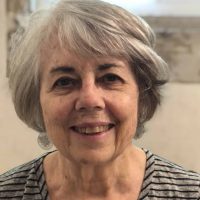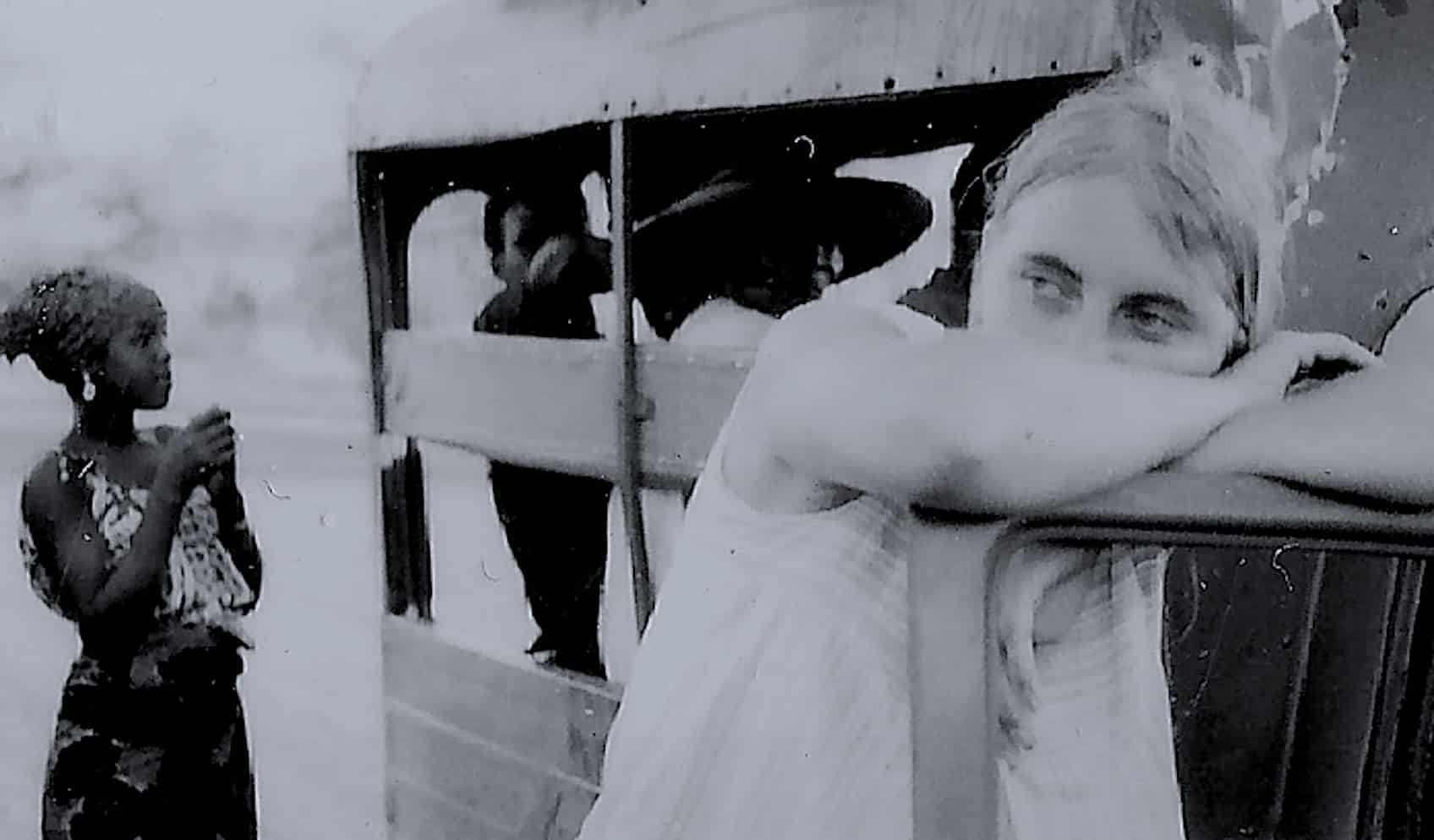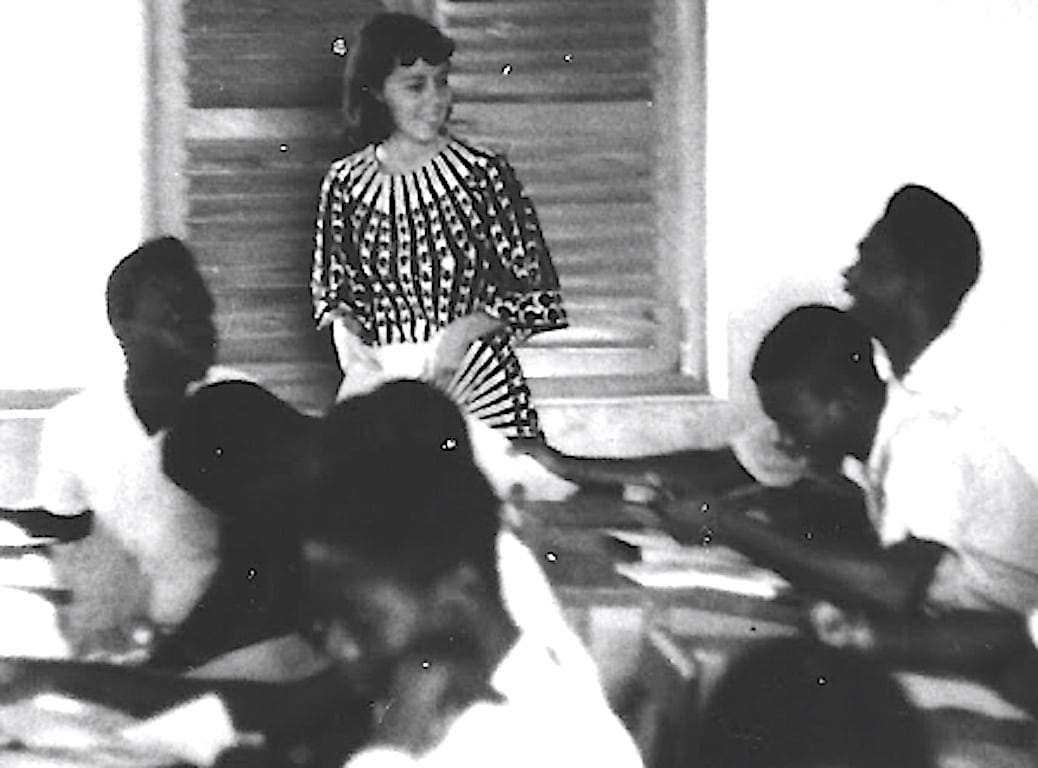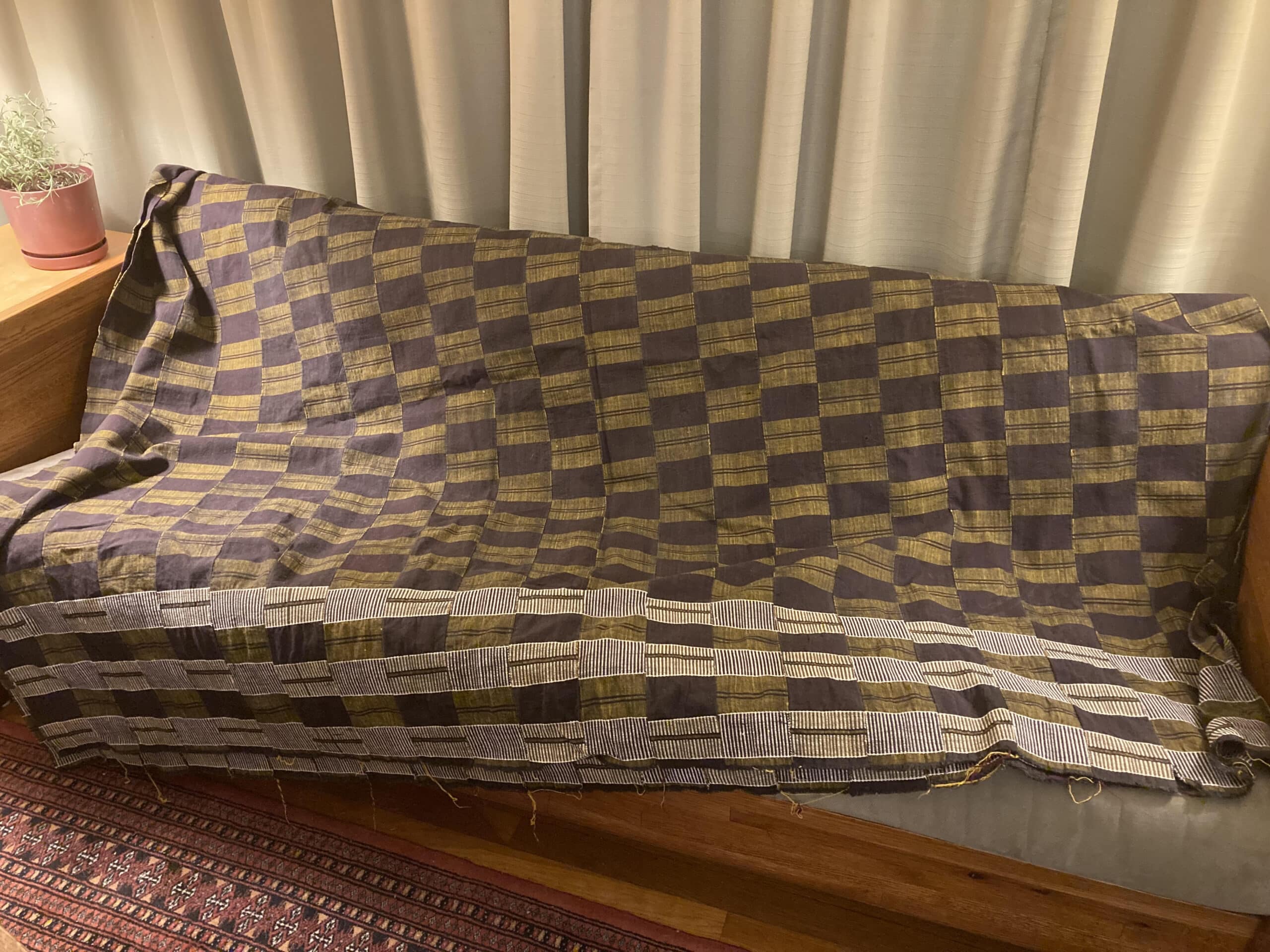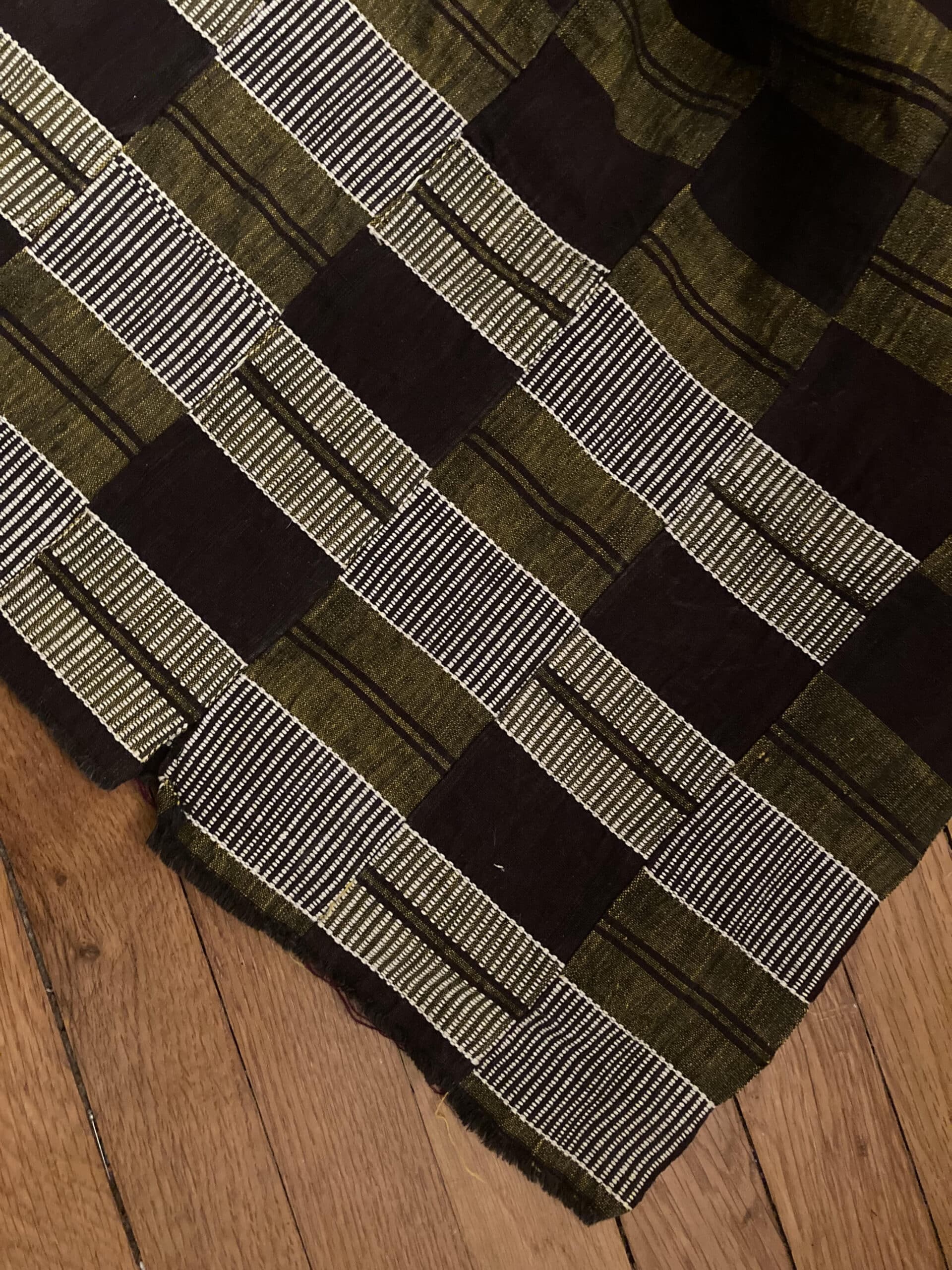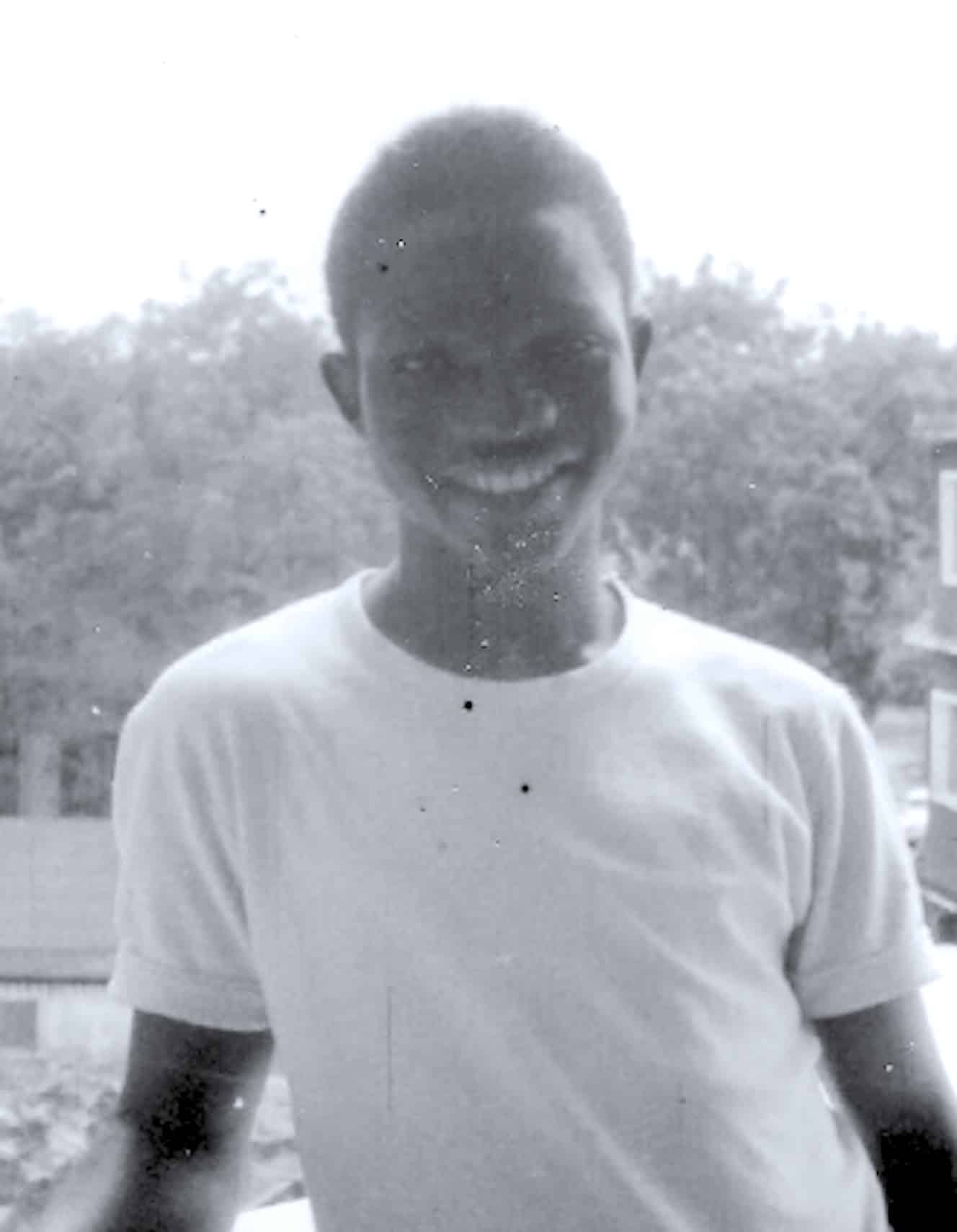Picture a tiny village, just a few houses next to the lagoon that separates Keta—a coastal town and the center of traditional Ewe weaving—from Ghana’s mainland. Now picture two young “European” (i.e. White) women climbing out of a mammy lorry just at sunset. Dark is falling fast, as it does at the equator. We planned to catch the lagoon ferry that connects this narrow strip of coastline to the main highway. But the little white ferry has just pulled away on its last crossing of the day. Our lorry also had just departed without us. Suddenly we are stranded. No rest houses here. We speak no Ewe.
From the gathering villagers who’ve seen our dismay comes a school girl, about 15 years old. “You must come with me,” she says in English. Our options are not apparent; we follow. She takes us to her family compound—several small tin-roofed buildings around a courtyard.
“You are to sleep in my room,” she says. The bed is covered by mosquito netting. We have no clue where she will sleep that night.
In the courtyard, her mother is making a stew of tiny fish, onions, hot pepper, and tomatoes. It smells very good. But our young hostess, concerned that Europeans do not eat hot pepper, scours the village for Ovaltine and bread for our tea. In the morning she escorts us to the ferry. In my experience, Ghanaians didn’t offer directions—instead they said, “ I will lead you.”
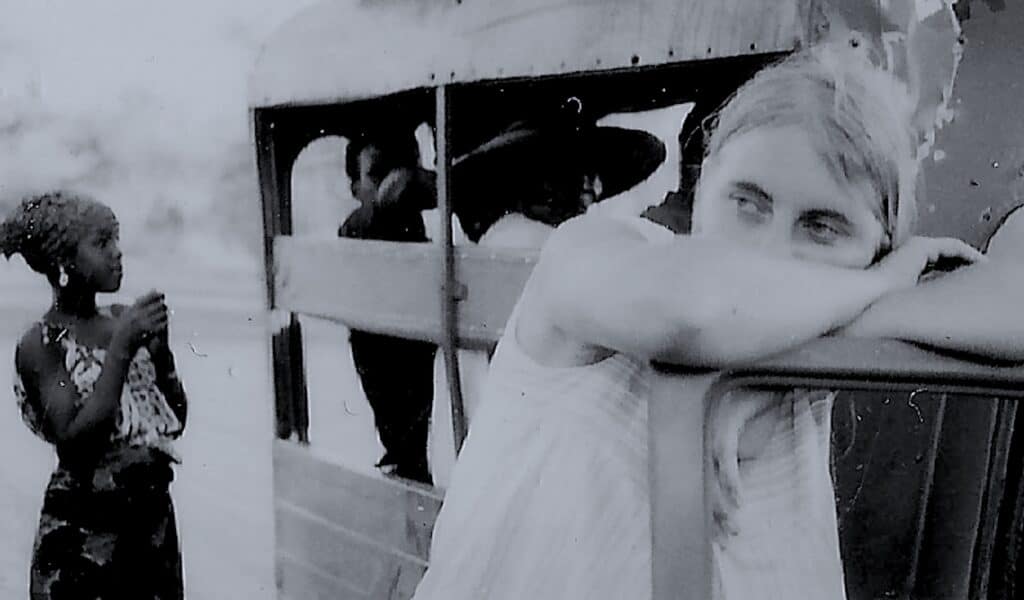
Fellow volunteer Sandra Deakin outside a van in Burkino Faso
I had come to Keta with my friend and fellow volunteer, Dottie Milligan, to see the renowned weavers at work. I’d purchased this handsome Ewe kente cloth, more subdued than the well-known bright silk kente of the Ashanti people—a man’s wrap that would convey both the wearer’s prestige and his pride in heritage. Then we’d hurried to this village—not fast enough—to catch the ferry to the road home.
Woven into my kente from Keta are memories of the kindness of strangers to this young and often clueless American Peace Corps volunteer. As a volunteer at Takoradi Secondary School, I taught English well enough, I hope, to compensate for the education the people of West Africa offered me. As I traveled in neighboring countries I was offered the same lesson again and again––that awareness of a stranger’s needs and a generous response.
Once, in Upper Volta (now Burkina Faso), riding for hours with my friend Sandra Deakin, a British Council volunteer, on crowded benches wedged in the back of a small van, I fell asleep. I woke up startled to find my head resting on the shoulder of the turbaned Tuareg man next to me. He’d kindly let me nap.
On our return trip out of Niamey, Niger’s capital, the pavement ended just beyond the city. Sitting on the floor of an open truck for a nine-hour slam-bang bumpy ride on a dirt road to Parakou in Dahomey (now Benin), we stopped briefly for what might have been called bathroom stops. But there were no bathrooms. Not a hill or a bush on the vast Sahel. The other passengers–six men–studiously looked the other way as Sandra and I squatted, red-faced, by the roadside. Once again…I felt the kindness of strangers.
I also found compassion at my own doorstep. On the day Robert Kennedy was assassinated, someone on my street shouted at me, “Why did you kill your president?”
“He was not our president and I didn’t kill him,” I shot back through hot tears.
When I reached my flat, Philip was washing my sheets in a bucket. I had thought that the last thing a PCV needed was a servant, but my landlord had pulled me aside to say that I had money and it was my duty to employ a houseboy—especially a 14-year-old boy from the North trying to get into secondary school. Thus, it was Philip who removed my trash, fought the roaches in the kitchen, and presented me with my mail before he left for the day. Occasionally, we talked together about the state of the world.
This was the day I really needed Philip.
“Mary,” he said as I walked in, “I’m so sorry to hear about Robert Kennedy.”
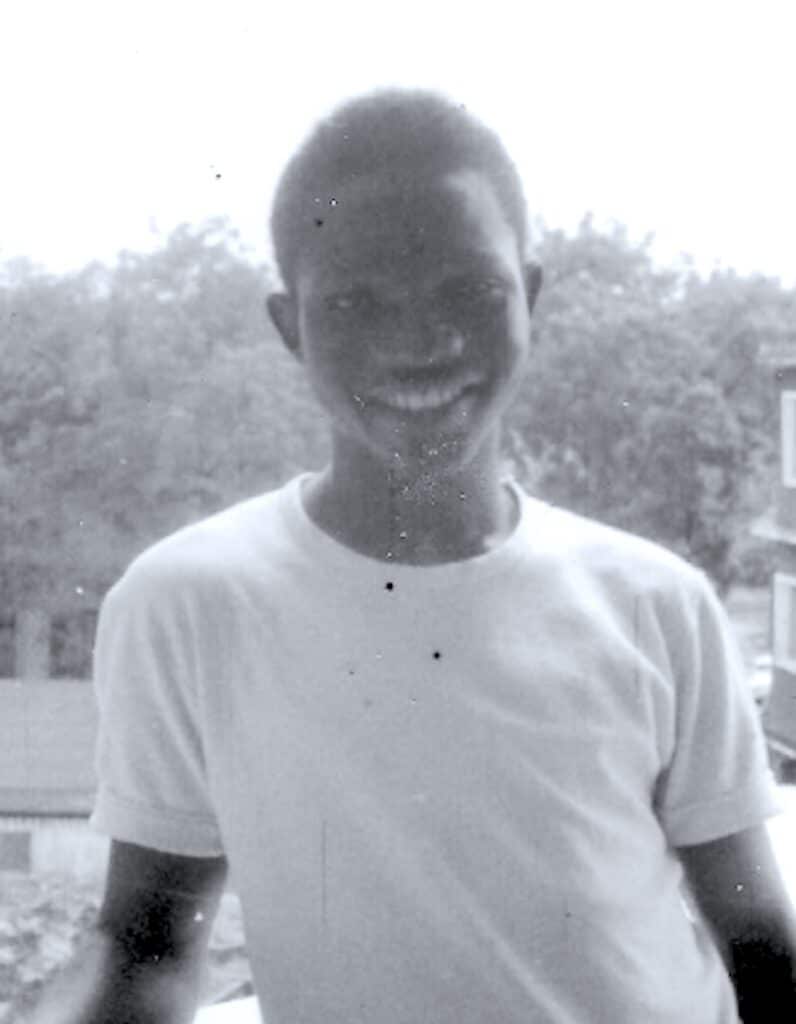
Young Philip Issak empathizes with his American employer

